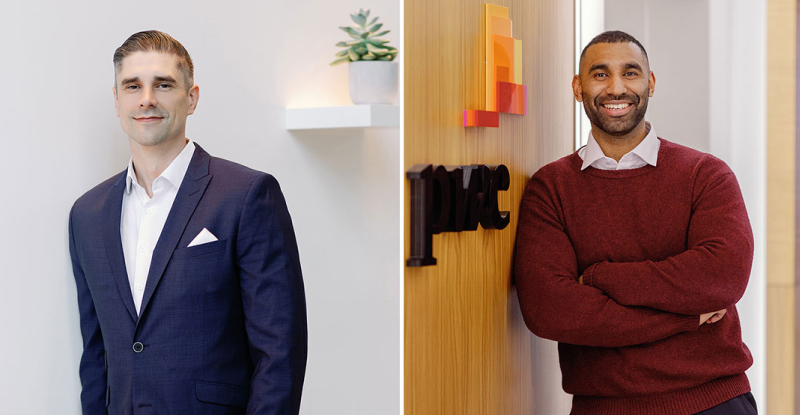
Proven demand in the job market and enhanced soft skills will help CPAs land that next position, no matter what career stage they’re at.
A strong job market continues to show trends in favour of employees in several industries—and, for accountants, prospects are expected to remain strong for at least the next three years.
According to a report by Robert Half Canada, when looking for new accounting roles, 33 per cent of candidates are now seeking greater job flexibility and 47 per cent want more remote work options. For CPAs who are looking for a career pivot, especially for those who have been in their role for an extended time, these key tips will help prepare them for the job market.
Updated digital presence
“Before anyone starts their job search, the first step is to ensure that their digital presence, including what’s on LinkedIn, matches what they have on their resume,” says Michael French, regional vice-president at Robert Half Canada.
In addition to basic job history, LinkedIn profiles allow professionals to showcase career supporting material such as speaking engagements, published articles, community engagements and other tools that highlight a candidate’s activity in the accounting and finance world.
“The more senior you get, the more you’re hired for strategic or leadership skills,” says French. Be sure to include anything relating to this type of experience in your profile as well.
Ability to pivot
The accounting industry is evolving. Five or 10 years ago, interviews targeted a candidate’s hard skills, such as focusing on their audit experience. Now there’s an interest in knowing what else you can do.
“How have you been active in the market? Are you continually upgrading your education and skills, taking advantage of wherever you are? What about technology and the emerging trends? That’s what we look for,” says Donna Khawaja, director of talent management and operations at EY Canada.
A focus on big data and artificial intelligence means CPAs must also continue to upgrade their technical skills and use them comfortably, as well as regularly upskill, she says.
“With all the changes taking place with technology, automation, digital space,” she says, “it’s important for candidates to not only be aware, but have experience, be comfortable and have the ability to pivot.”
Showcase a personal trademark
Khawaja recommends candidates strategize not only what they put in their online profiles and resumes, but also about the conversation they want to have with the employer during the interview process. Think about “What you want to say about yourself and how you want the employer to perceive you,” says Khawaja.
For those looking to change industry, such as from assurance to tech, she says a personal brand can showcase your potential. “If they have a genuine passion and interest, then that’s something that we definitely look for. It’s not necessarily just the tangible, actual experience, but also more interest in the career development.”
Interview the company
A job interview is mutually beneficial to make sure you are aligned on basic things such as work location (fully remote, hybrid, in-office, etc.) but it’s also a chance to gauge each other’s corporate philosophies and values. Online research will give you basic insight into a company, but French says reading mission statements is no longer enough and that candidates must look for a company’s approach to ESG and DEI initiatives, for example.
He says this gives potential employees the ability to understand if they are a good fit with the company—and if a company is a good fit for the candidate. Another way to see if the company is a good fit is to meet with other people who work there. Ask if you can be connected to a potential peer to ask questions and get their perspective.
For Khawaja, a candidate’s ability to demonstrate why they want to work at a specific company, their desired career path and how that fits with the firm is a major hiring priority. “Not only is the candidate able to articulate what they’re hoping to achieve by joining our firm, but it’s also what we can [do to] support them and their contributions,” she says.
Stay ahead of the game
Learn how big data is impacting the profession, where accounting is headed and find targeted courses needed for upskilling.
Author
Michelle Singerman is a Toronto-based writer and digital content creator who began her career in local news reporting more than a decade ago. Michelle has been with CPA Canada since 2013.
Originally published by CPA Canada's news site.



